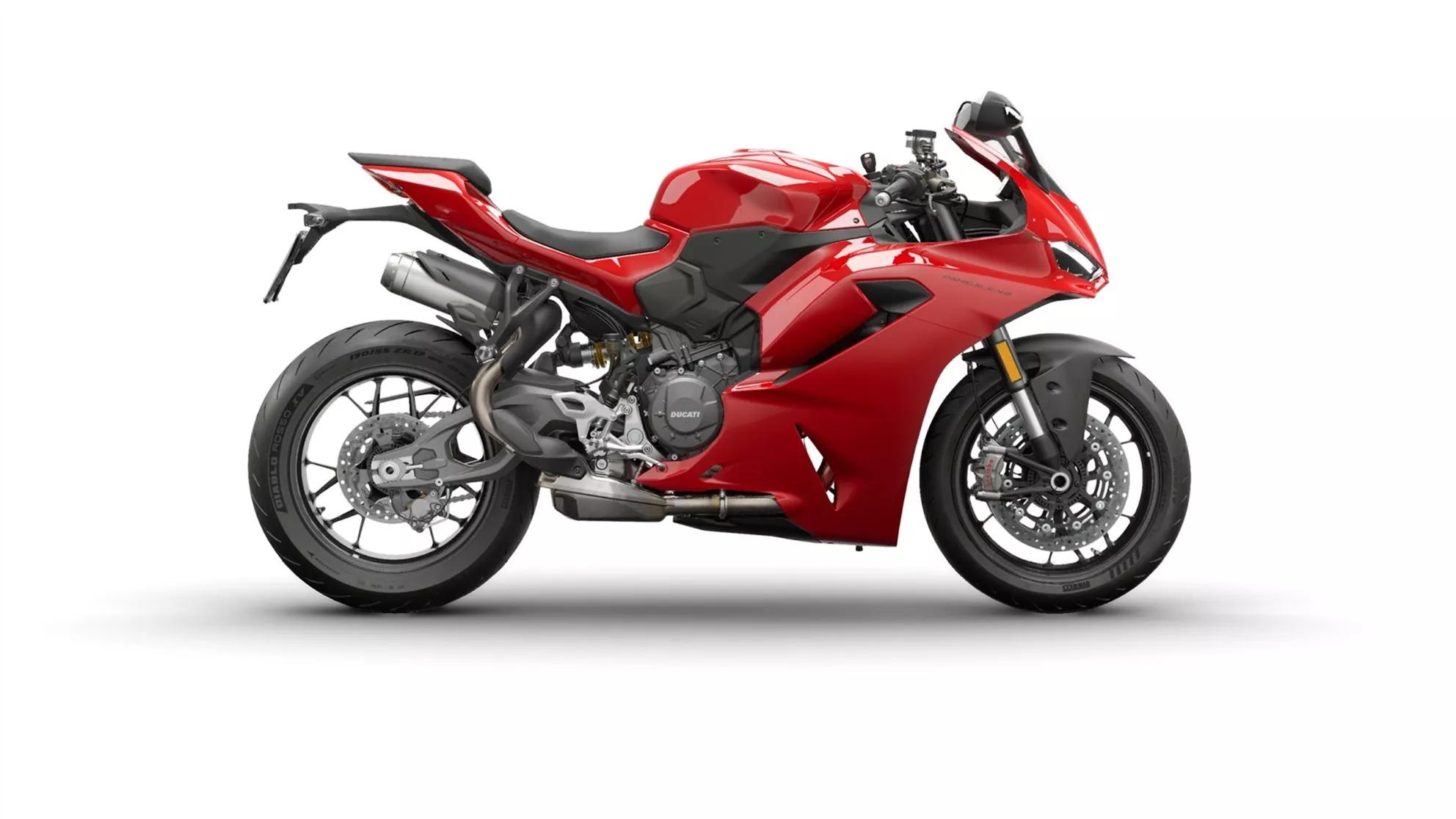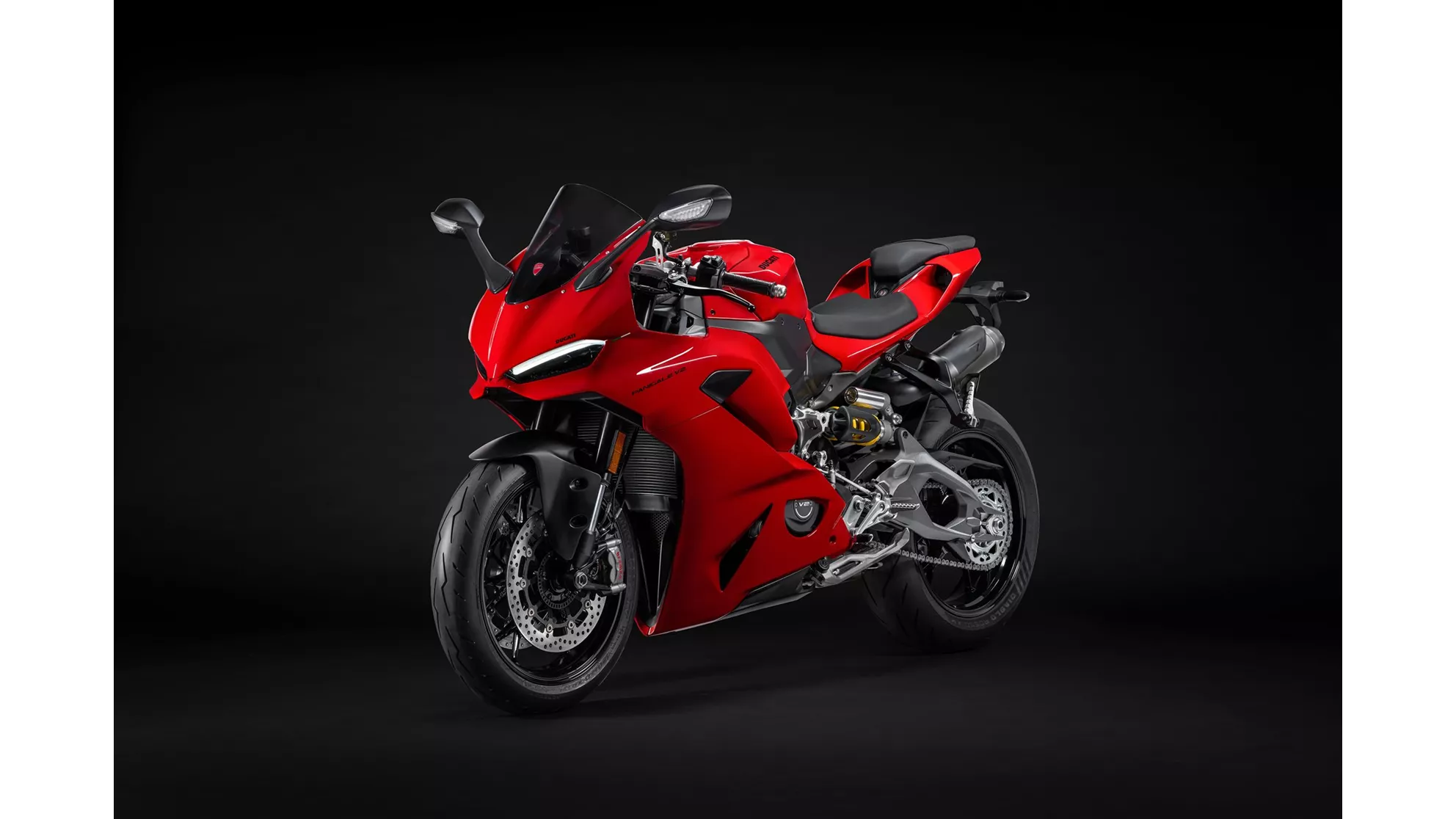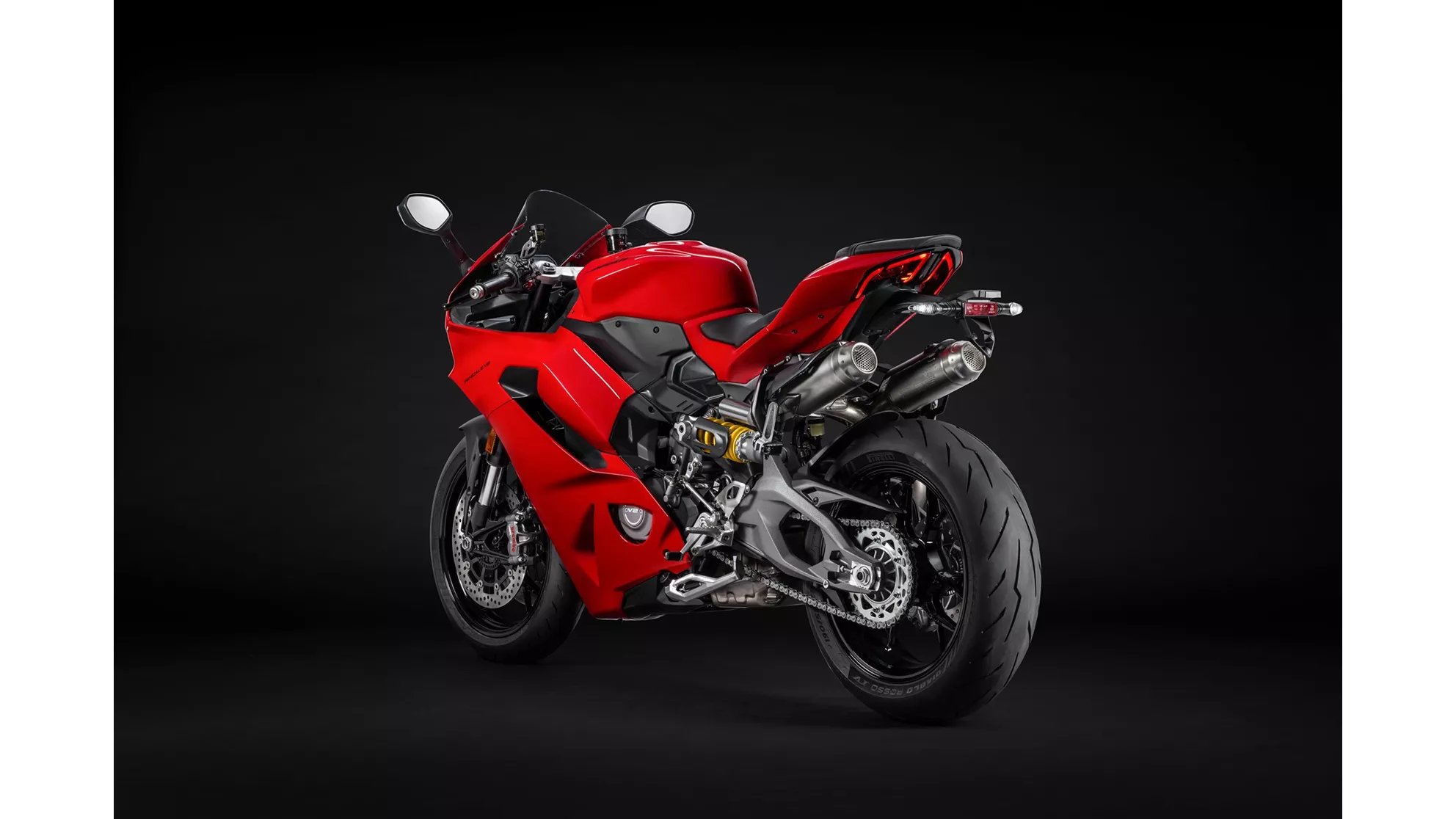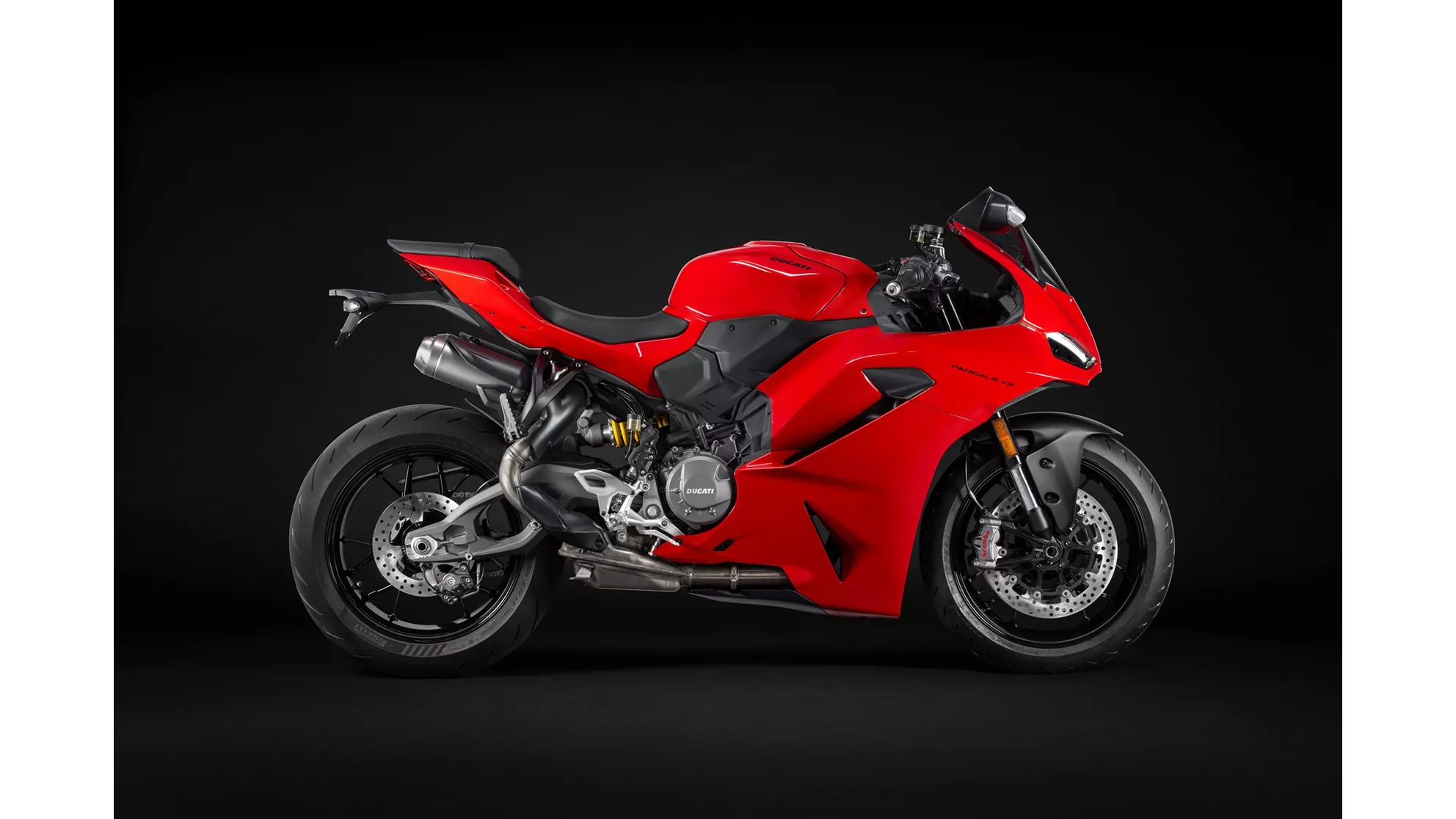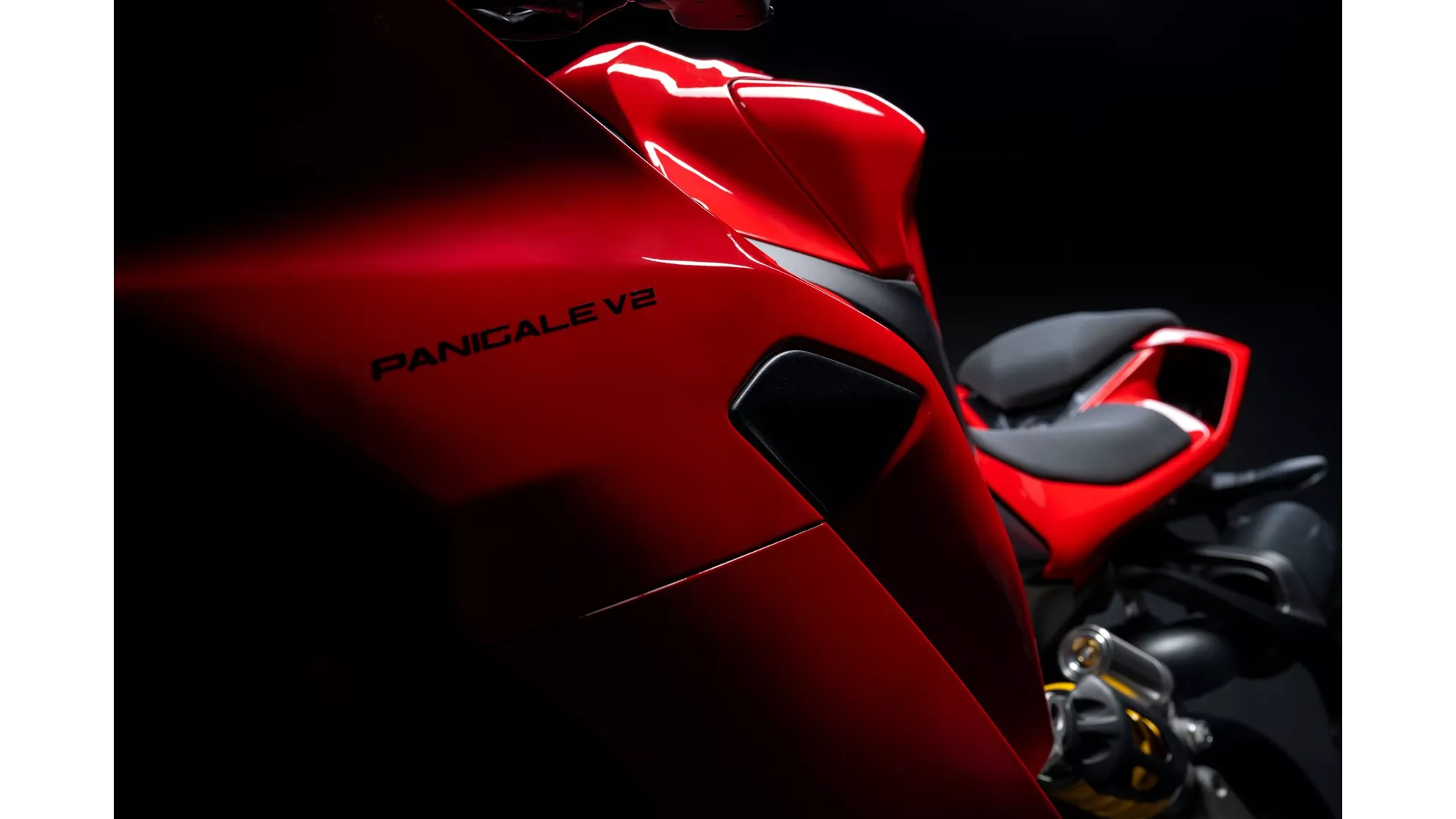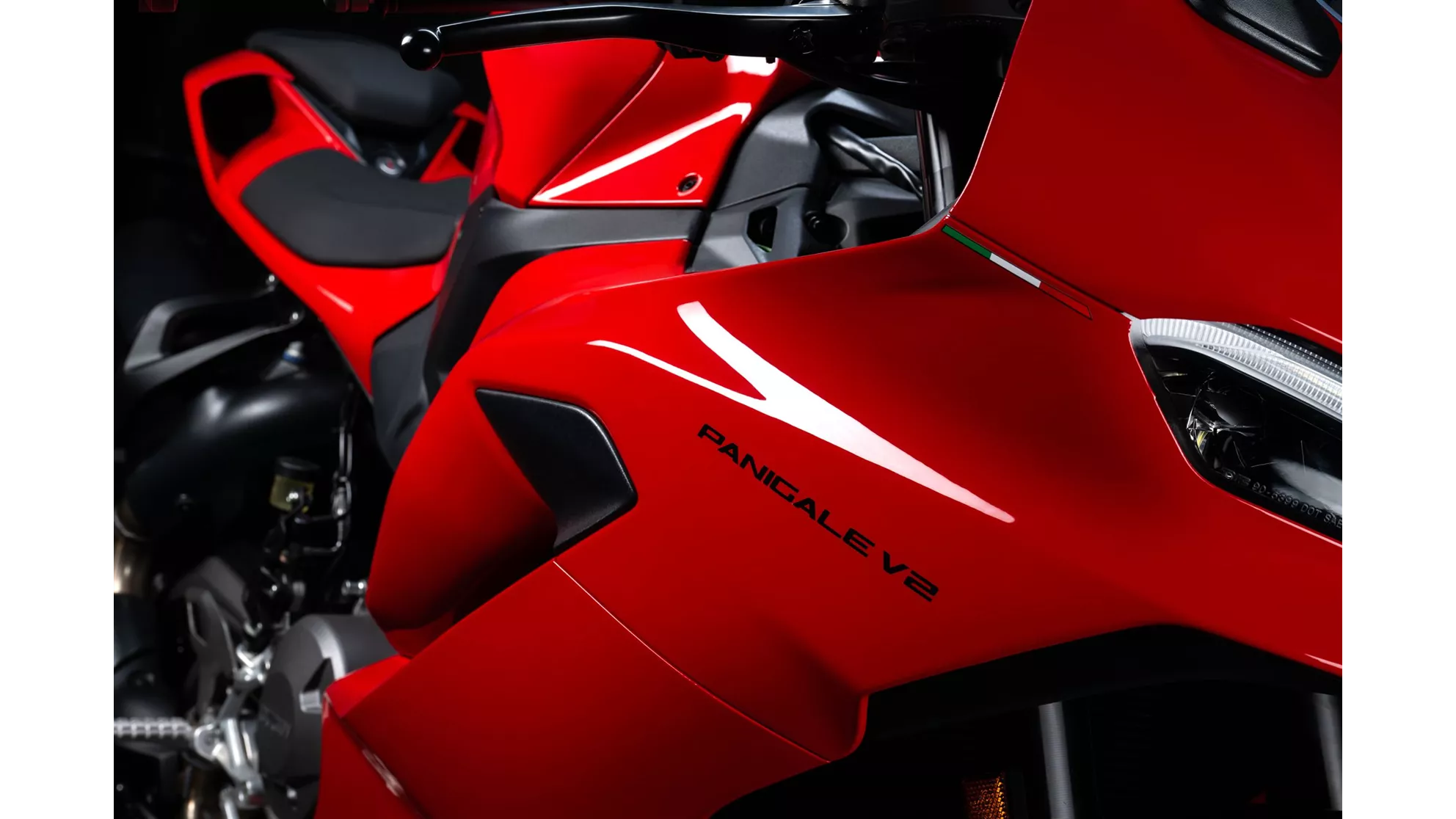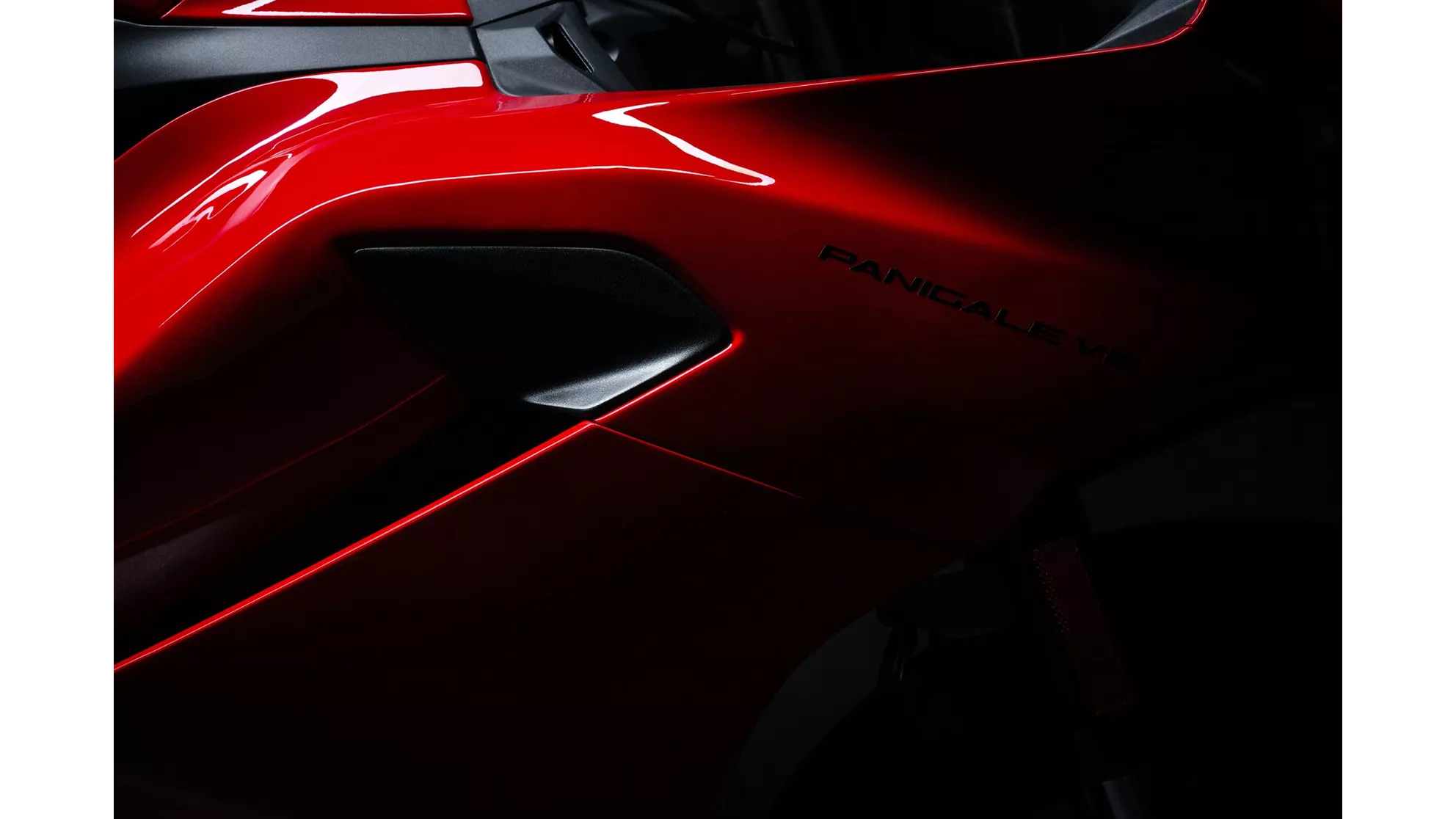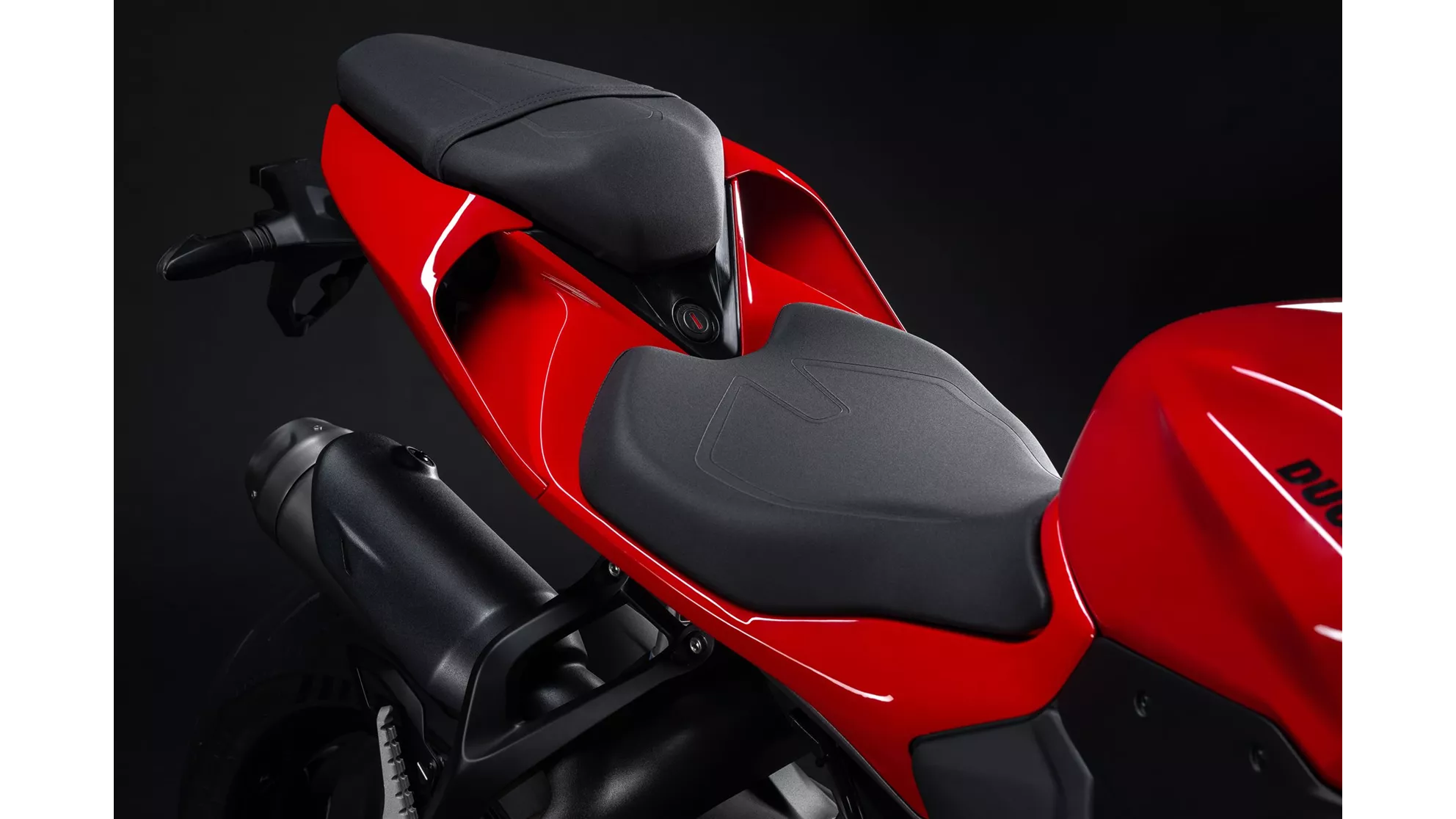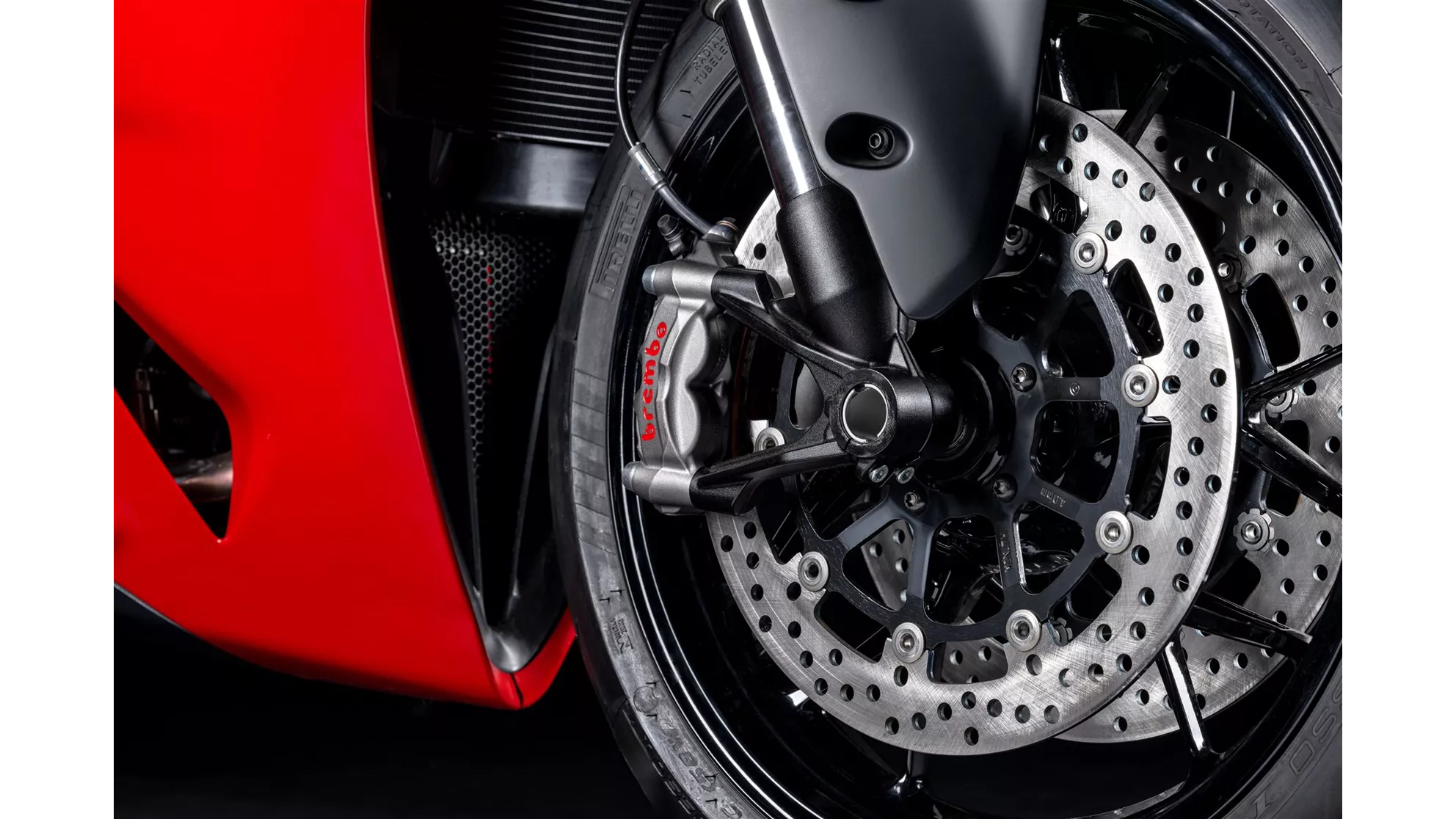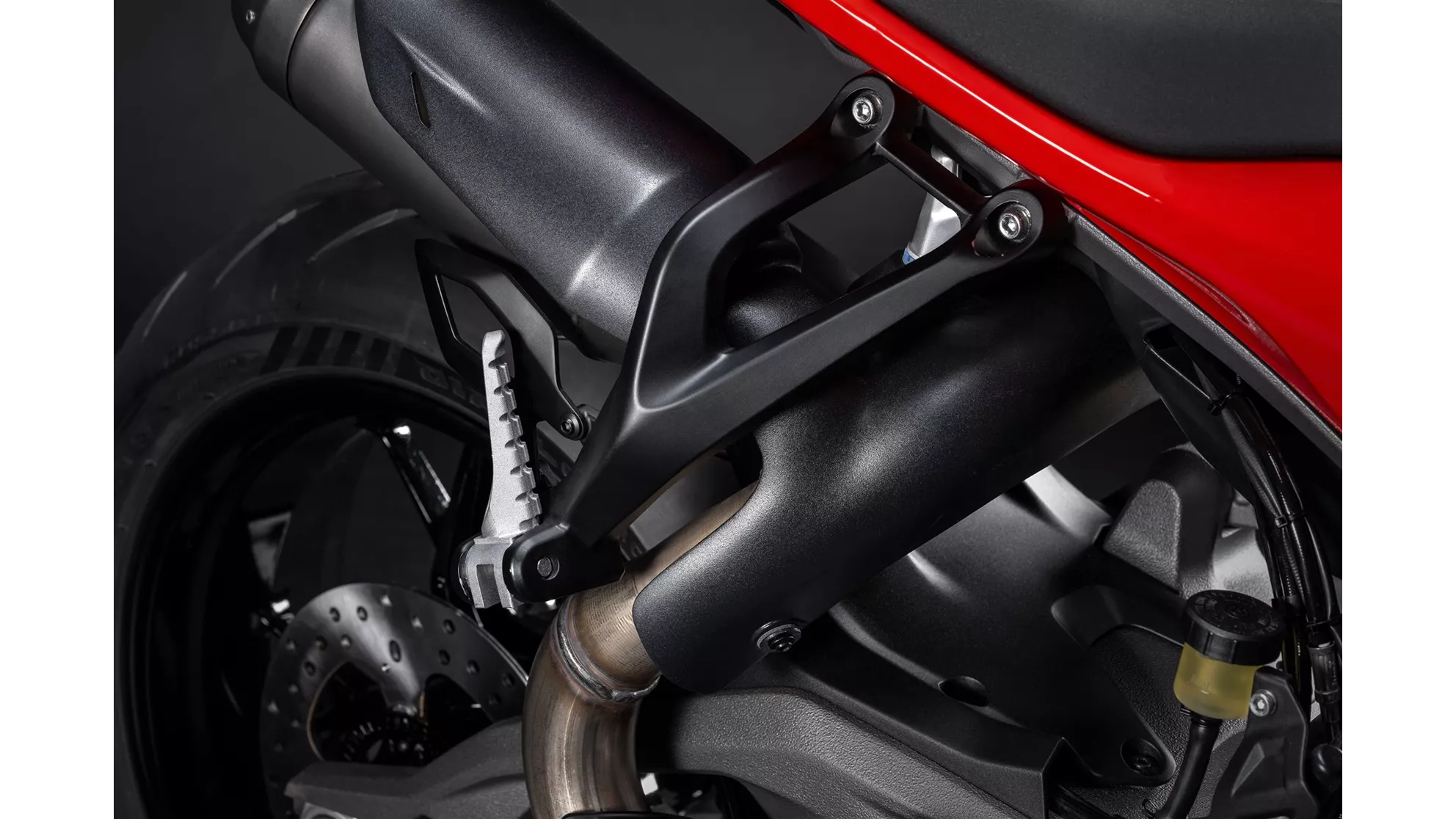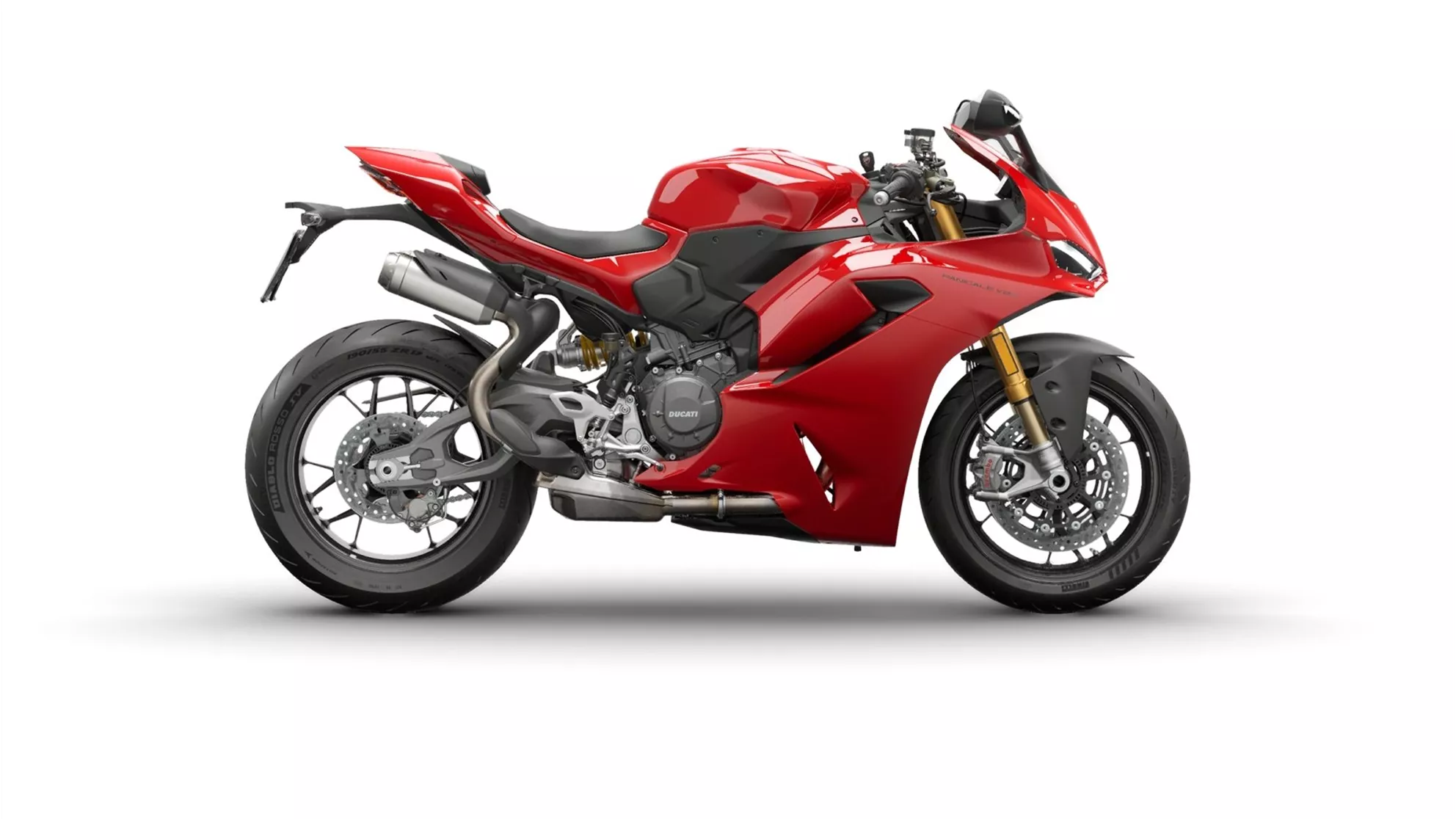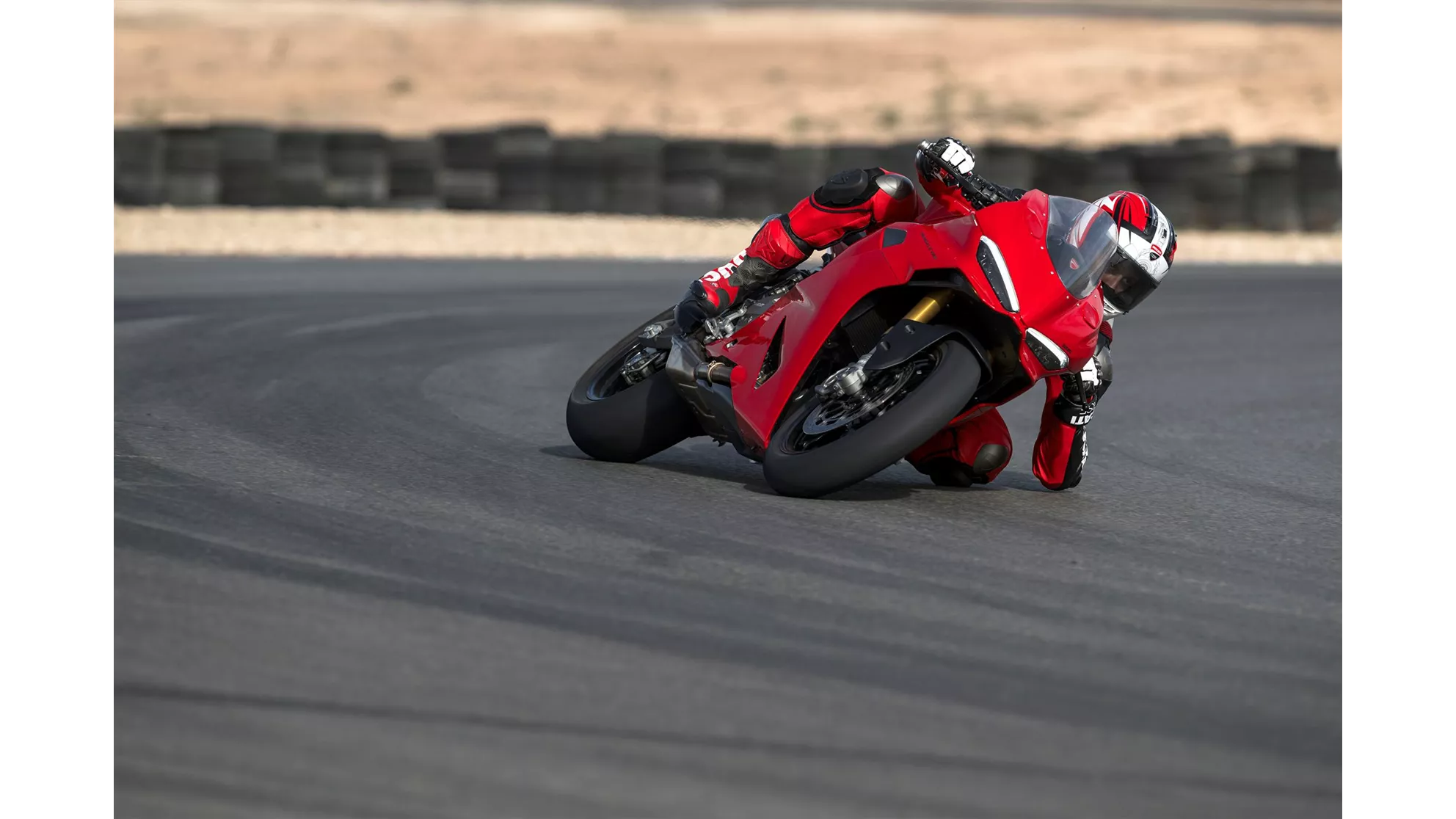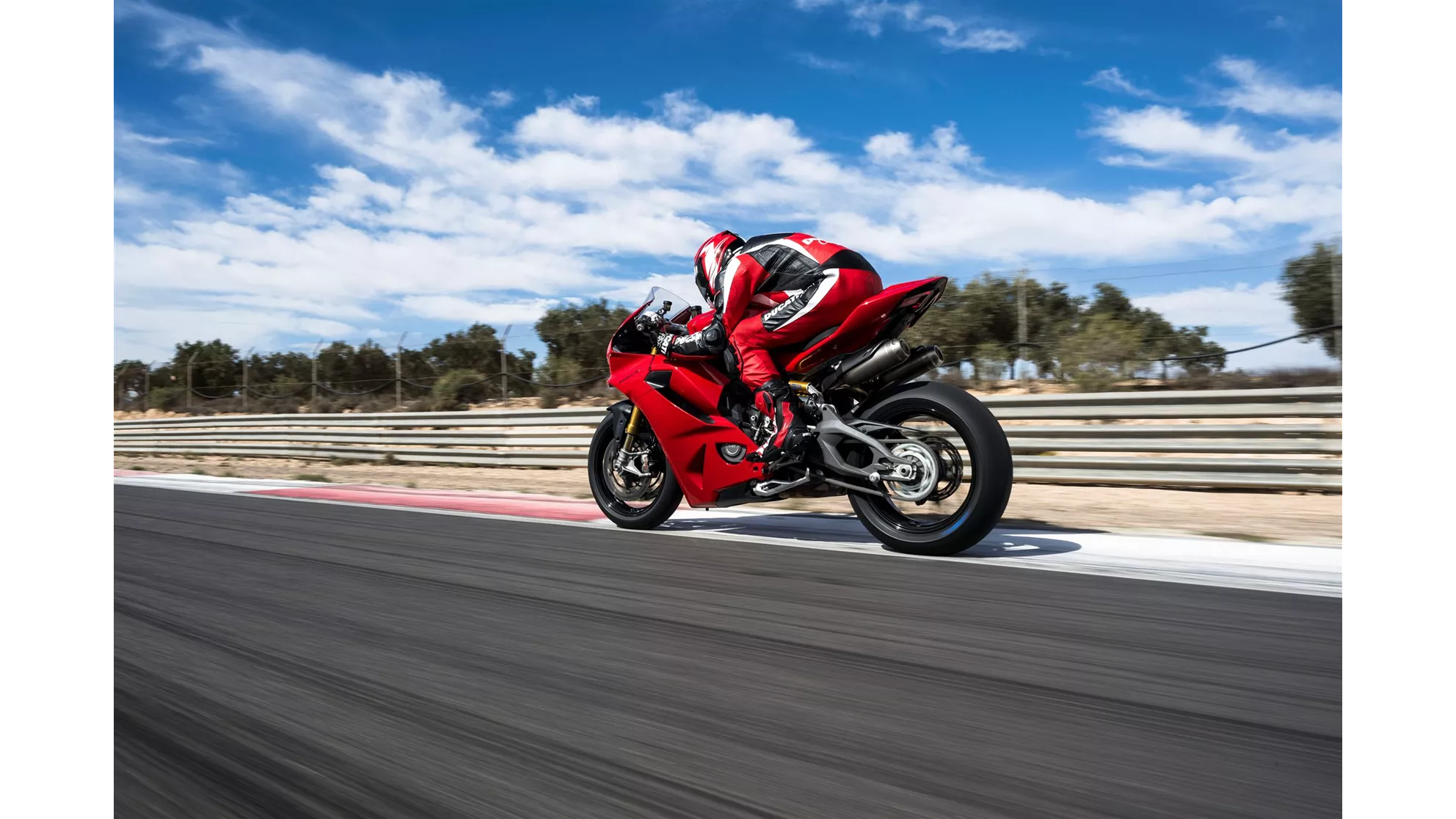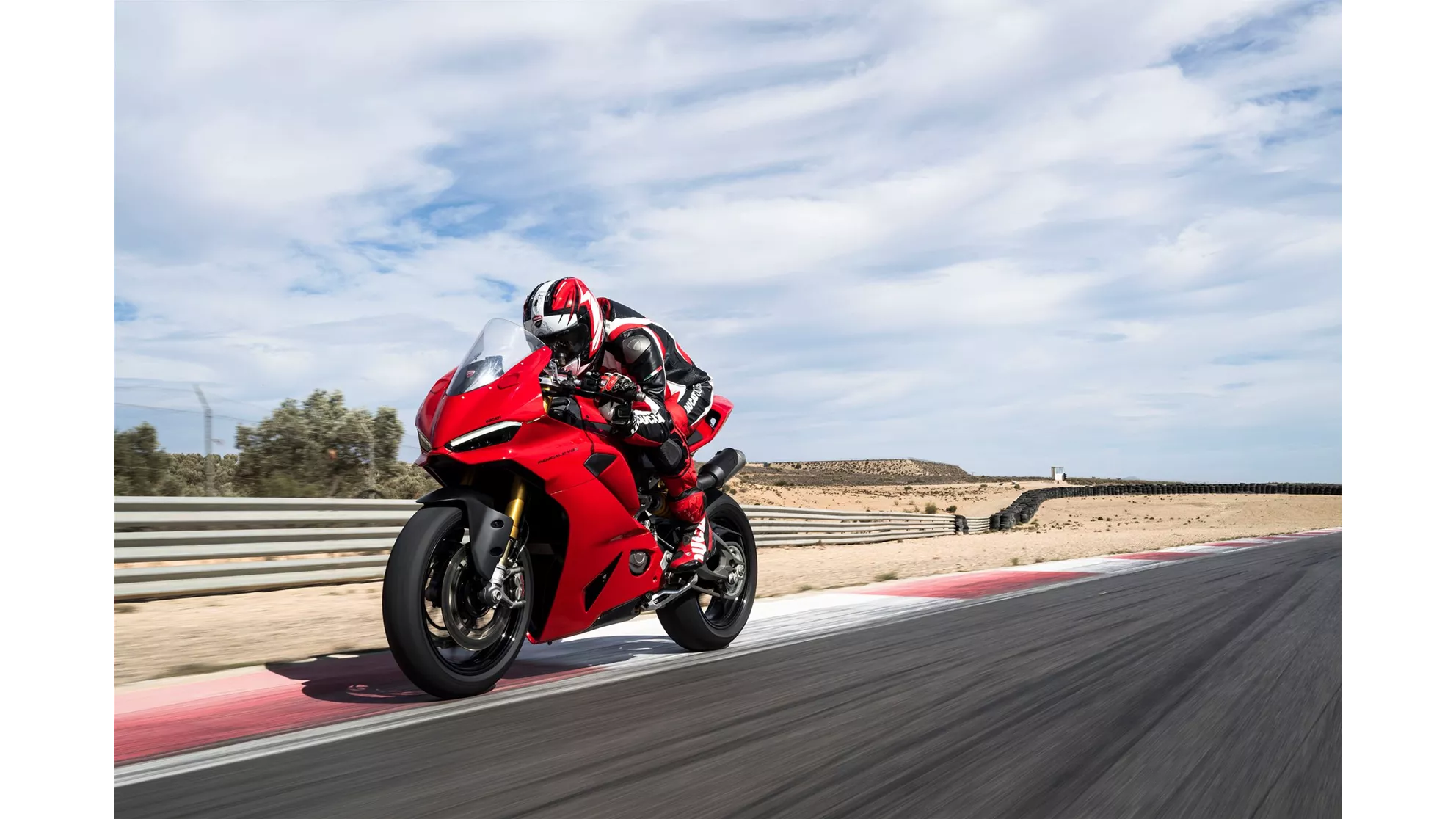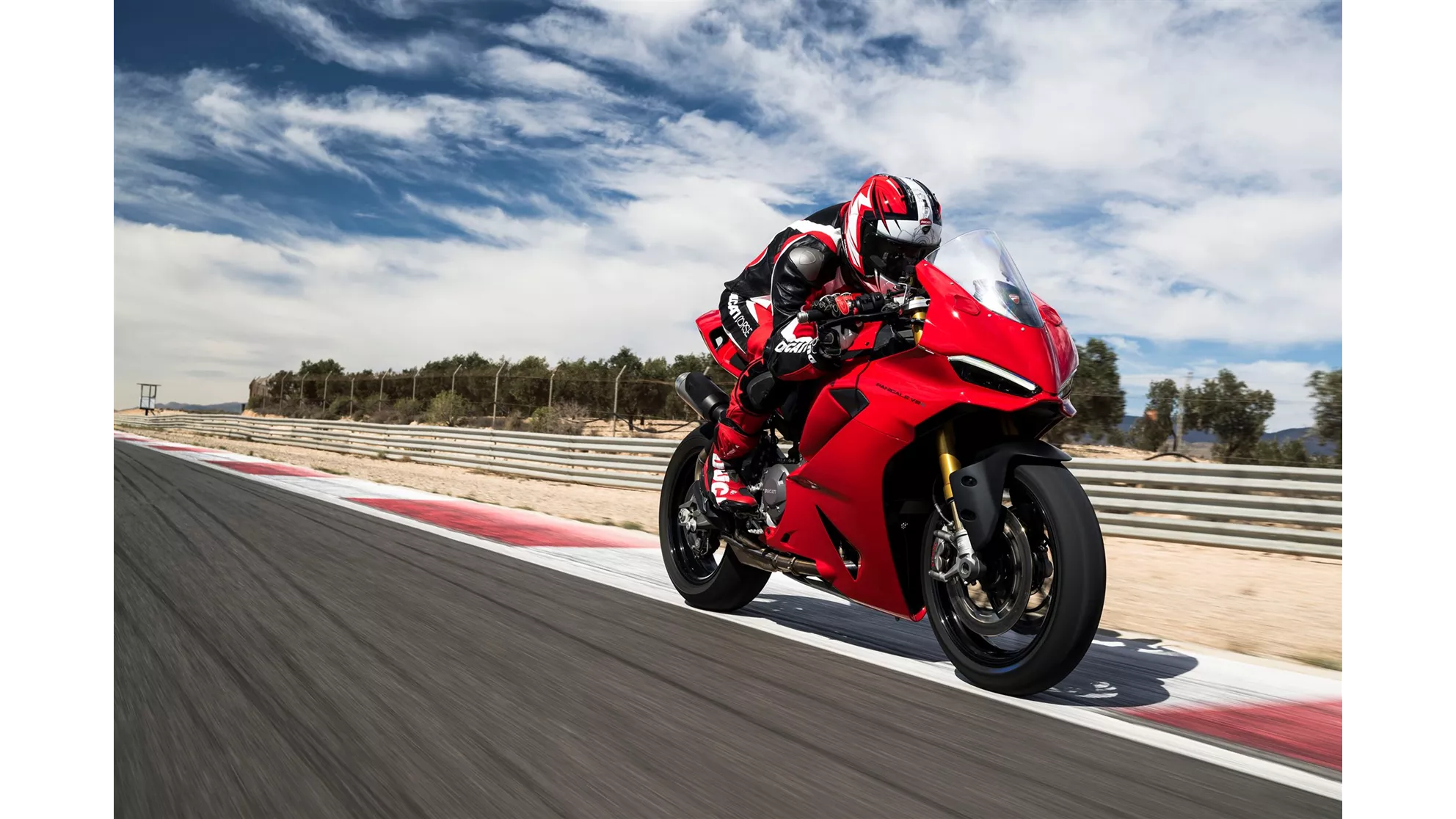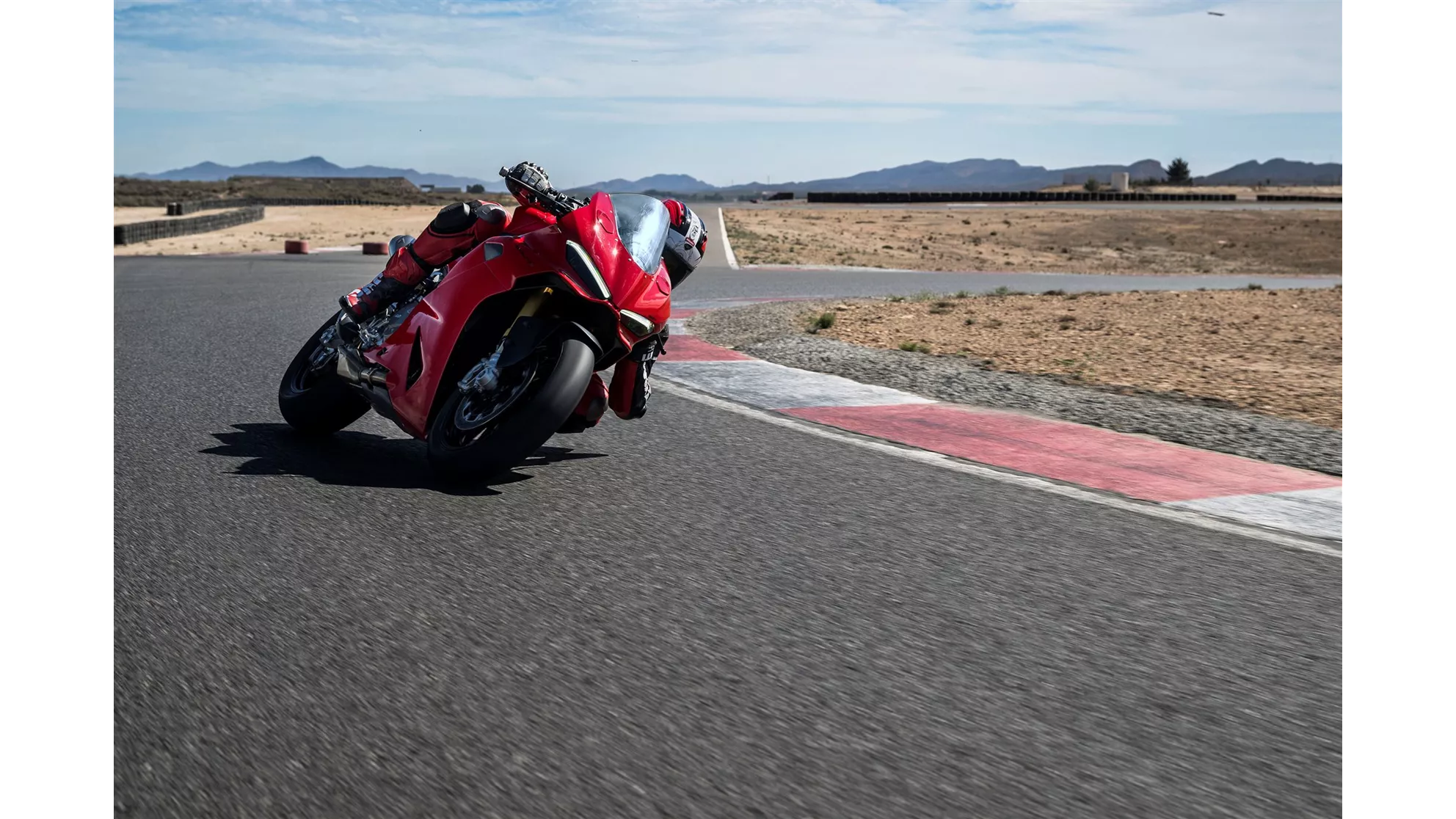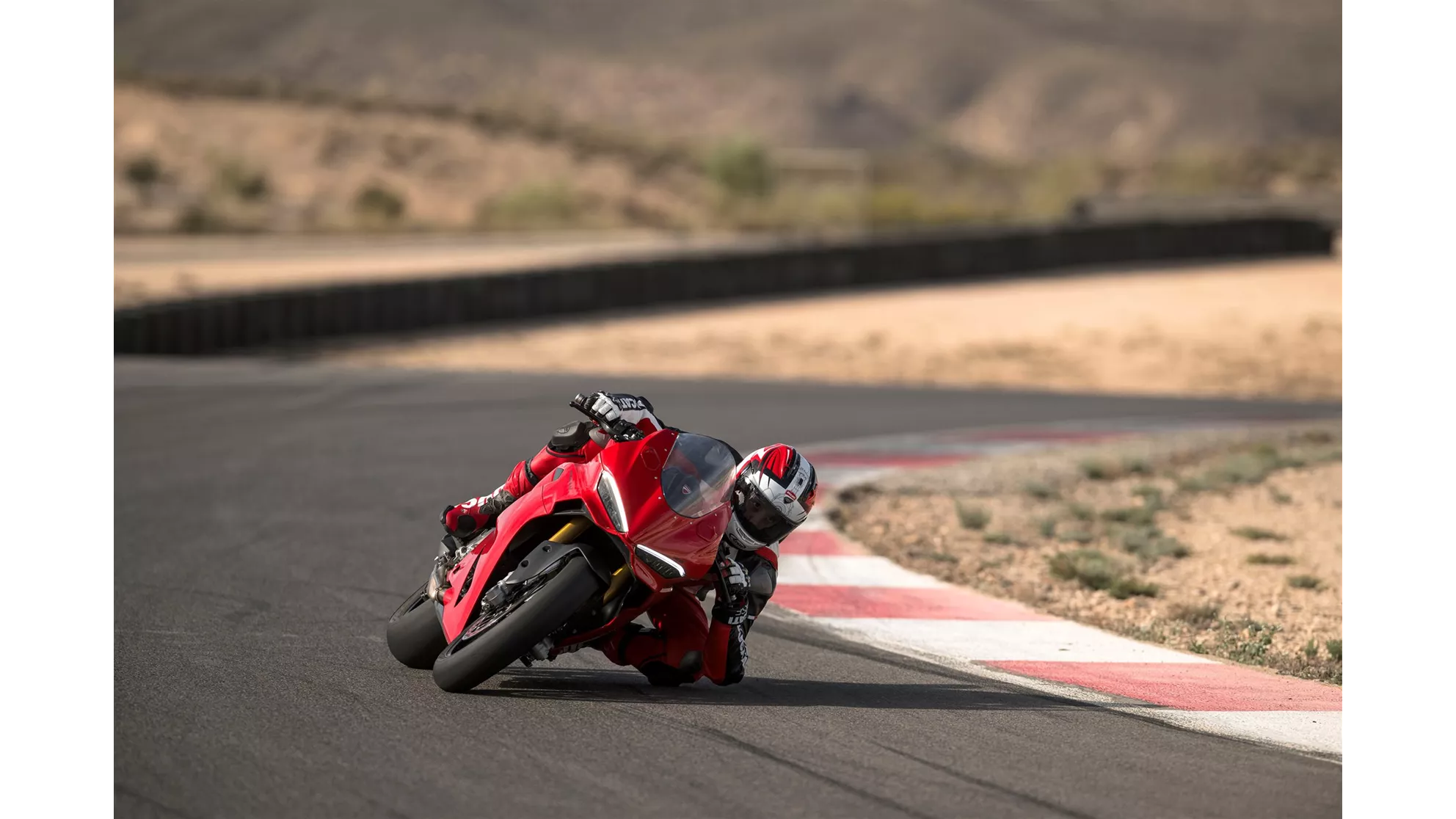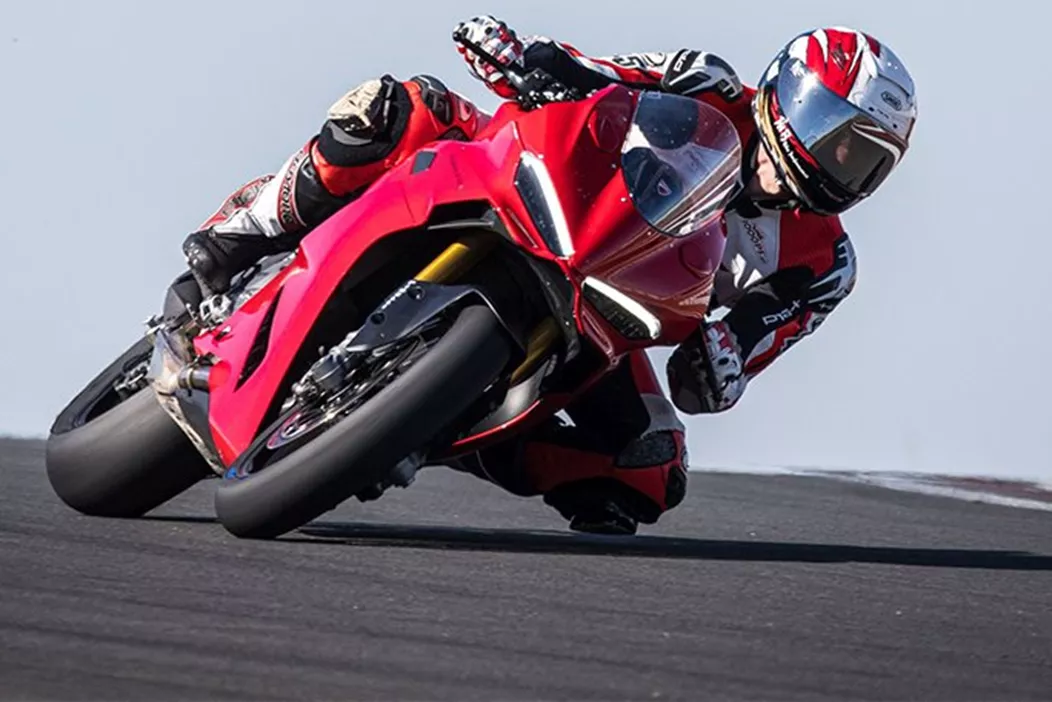As previously mentioned, the new V2 engine has been reduced in displacement and power, coming in at 890 cc and 120 hp in our lineup. The basic construction and the 90° cylinder angle have remained the same. However, Ducati managed to make the engine more compact and, above all, lighter thanks to the smaller displacement. An impressive 9.4 kg was shaved off the 955 Superquadro. This was achieved through many small details, such as hollow-drilled and chrome-plated valves. Additionally, they rely on DLC coatings in the valve train, which, thanks to increased wear resistance at the contact points, allows for a reduction in component size and thus saves weight. Furthermore, the new engine does not use Desmotronic. The valves are closed by springs, as is common in most other motorcycles. This eliminates the complex valve adjustment typical of Desmo engines, extending the valve clearance inspections to a 30,000 km interval.

Bombshell: Less Displacement! Ducati Panigale V2 2025
Ducati is launching a new V2 Panigale with reduced displacement!
One would expect anything from Ducati, but hardly a new V2 Panigale with a newly designed engine boasting less power. Especially after the predecessor wasn't exactly considered a powerhouse compared to the in-house V4 version. However, the Italians are going in a completely different direction and are focusing on downsizing the engine. With a smaller displacement and reduced power, they seem to aim at making a mark in the lower segment, carrying the illustrious name "Panigale" with them. What can we expect?
&width=72&height=72&bgcolor=rgba_39_42_44_0&mode=crop)
Martin_Bauer
published on 11/5/2024
New Ducati V2 Engine 2025
What can we expect from the new engine?
A significant portion of the weight savings is due to the smaller housing design, including smaller cooling channels and the water/oil heat exchanger mounted between the cylinders, which makes the oil cooler redundant. In addition to the weight advantage, the variable valve timing, already known from the competition, is used to compensate for the displacement disadvantage in the lower rev range. This improves performance at lower revs, resulting in a more even power delivery, which is particularly advantageous in road use. Nevertheless, the maximum power is only reached at 10,750 rpm and the maximum torque of 93 Nm at 8,250 rpm before the limiter kicks in at 11,350 rpm. With the optimized exhaust system available as an accessory, the engine is said to reach 126 hp. Based on these data, those seeking maximum thrust will still need to operate in the higher rev ranges. Ducati also takes a unique approach with the standard exhaust system. While the outlet features two mufflers mounted under the seat, similar to the V4 Racing system, the rearward pipe routing is somewhat unusual. While the aim is usually to elegantly conceal these within the motorcycle, in this case, they are routed very far back underneath, then prominently led up the side of the swingarm. This might be an attempt to keep the well-known heat radiation of the Panigale away from the rider. Whether this is visually appealing remains to be seen. The anti-hopping clutch runs in oil, thus preventing the earlier Ducati-typical clutch rattling at a standstill, which would hardly be permissible under today's noise restrictions. Naturally, the new engine meets the latest Euro 5+ standards, making it suitable for future applications. For this reason, the engine will also be available with 115 hp and a larger flywheel to accommodate other motorcycle types with further concessions towards ride comfort/touring.
Chassis of the new Panigale V2 2025
The monocoque frame of the Panigale V2 is cast from aluminum and is very light at 4kg. It is directly attached to the cylinder head of the engine, which reinforces the structure of the bike while simultaneously reducing weight. With a wheelbase of 1,465 mm, a steering geometry of 23.6° rake, and 93 mm trail, the Panigale V2 is nimble in handling and should allow for quick, precise steering. These characteristics should ensure stability when cornering and at high speeds. The swingarm, like that of its larger V4 sibling, is a double-sided design.
A significant difference lies in the seating position. Compared to higher clip-ons, it is noticeably relaxed, emphasizing its roadworthiness for longer stretches. With a seat height of 837mm, average to tall riders should feel comfortable, though shorter riders might find it a bit challenging. Overall, weight savings have been made in these areas as well, and with a lightweight lithium battery, the total weight of the vehicle has been reduced by an impressive 17kg compared to its predecessor, now weighing only 179kg wet without fuel.
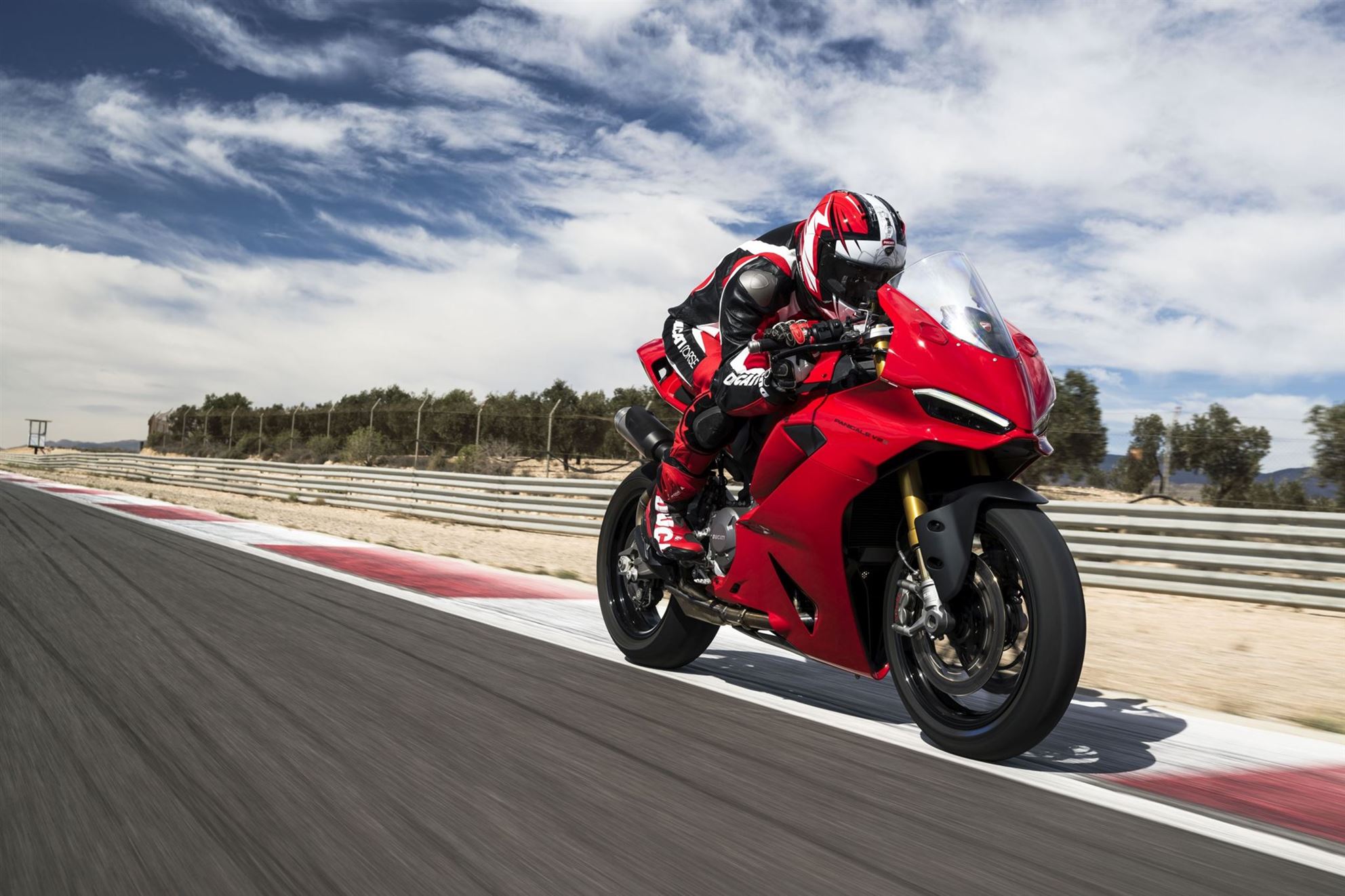
Ducati, true to form, relies on Brembo for the brakes. With two 320mm discs at the front, gripped by M50 calipers, the new Panigale should be able to decelerate effortlessly.
Ducati Panigale V2 S with Öhlins components
- How much does a Ducati Panigale V2 cost?
- Here you will find an overview of the price level of new and used motorbikes!
In the standard version, a 43mm Marzocchi fork is used at the front and a Kayaba shock absorber at the rear, while the "S" variant fully relies on Öhlins. However, this time no electronic adjustability is implemented, thus making concessions towards pricing. Nevertheless, all suspension setups feature a fully adjustable system.
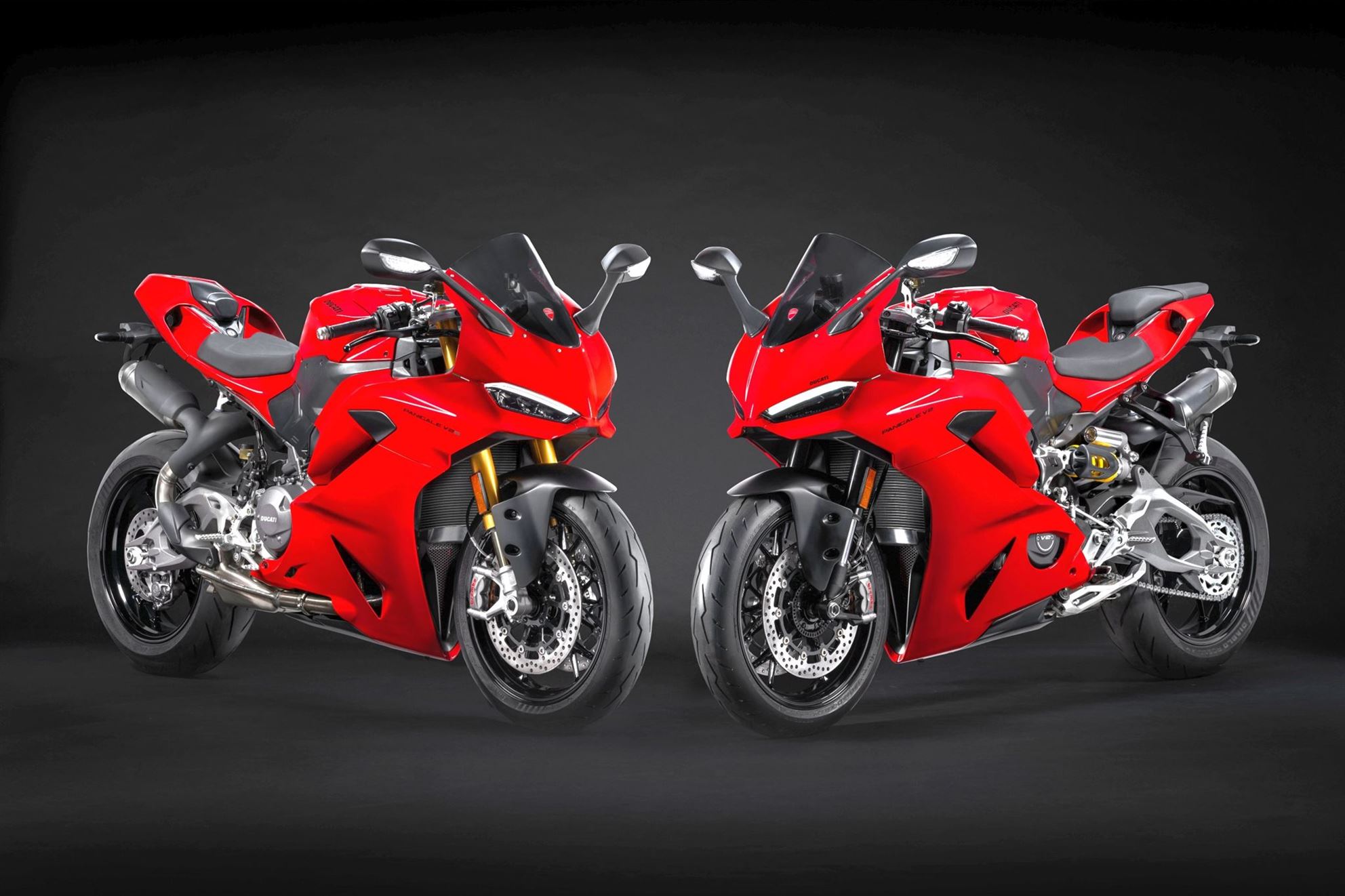
Comparison: Panigale V2 S (left) and Panigale V2 (right).
Electronics and Riding Modes
Alongside the 5" TFT display, the Panigale V2 features an advanced electronics package based on a 6-axis inertial platform. The functions include:
- Sporty ABS Cornering: Provides extra safety when braking in corners.
- Ducati Traction Control (DTC): Prevents rear wheel spin.
- Ducati Wheelie Control (DWC): Controls front wheel lift during acceleration.
- Engine Brake Control (EBC): Regulates engine braking.
- Ducati Quick Shift 2.0: Allows quick clutchless shifting.
The Panigale V2 offers four riding modes (Race, Sport, Road, Wet), allowing the rider to adjust the settings for all controls and the throttle response to their preferences and the respective riding conditions.
Ducati Panigale V2 2025: Availability and Colors
The Ducati Panigale V2 will be available at dealers from the end of January 2025, initially in the classic Ducati Red paintwork. The V2 will be offered in a two-seater configuration, while the V2 S will be available in a single-seat configuration, with a passenger kit as an accessory.
Ducati introduces the new V2 Panigale as a toned-down variant, clearly aiming for road suitability and beginner-friendliness with a presumably more comfortable seating position. This is further emphasized by the fact that the V2 will also be available in an A2 version. A Panigale for beginners, who would have thought?
- How much does a Ducati Panigale V2 S cost?
- Here you will find an overview of the price level of new and used motorbikes!
More from 1000PS Magazine
Bombshell: Less Displacement! Ducati Panigale V2 2025 Images
Source: 1000PS














































